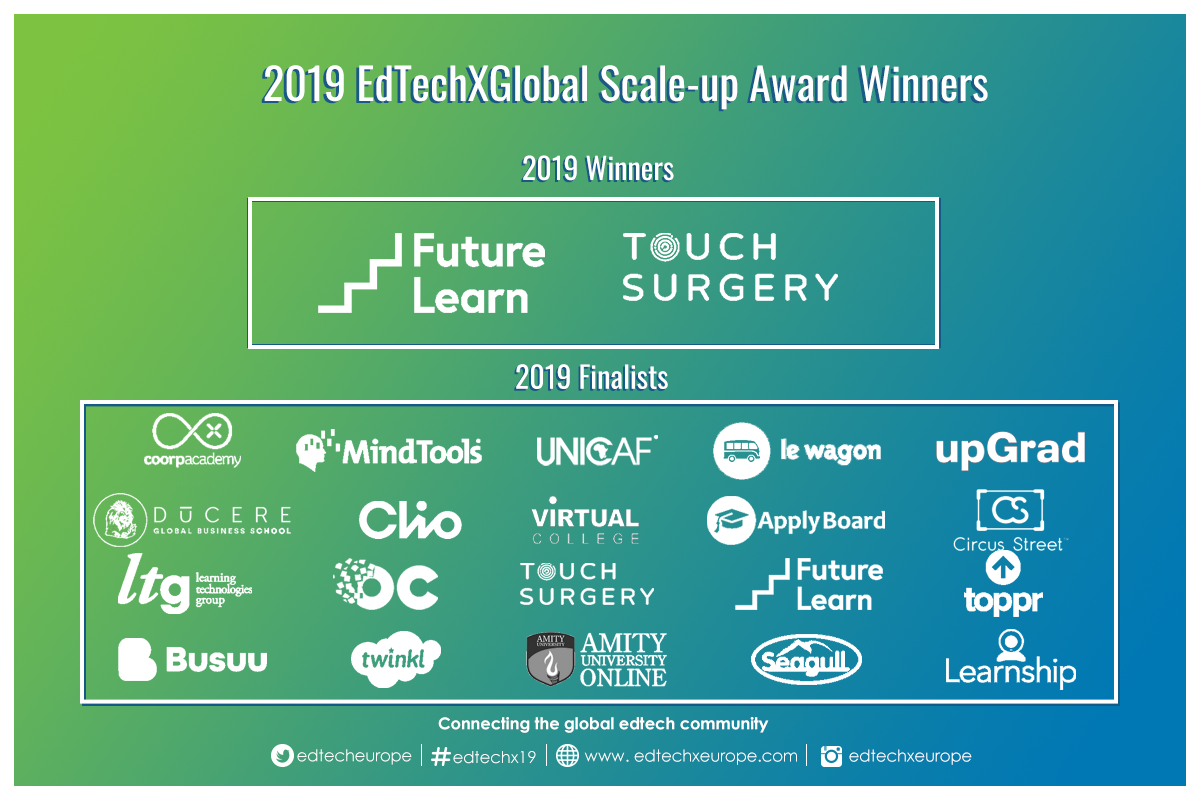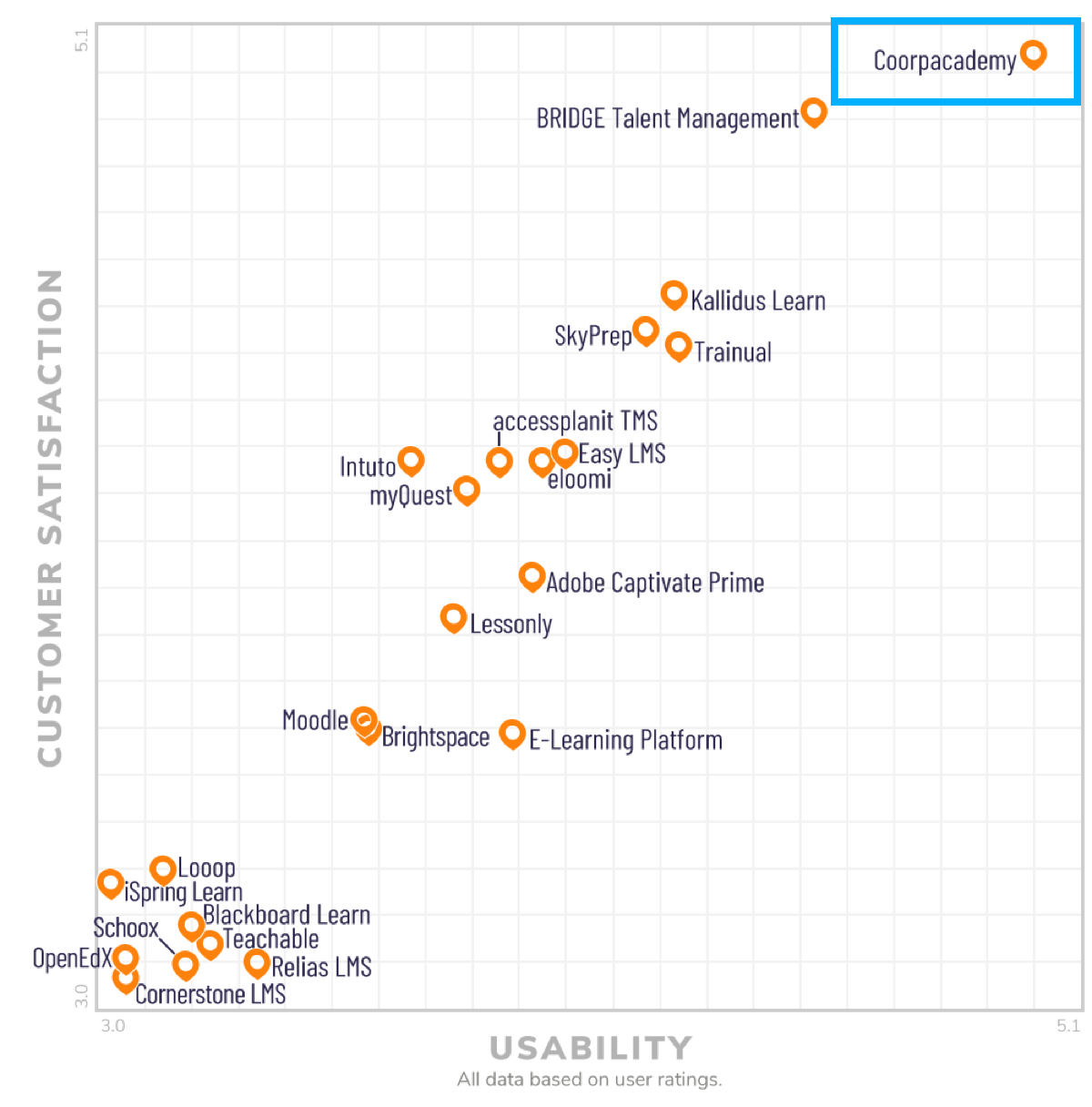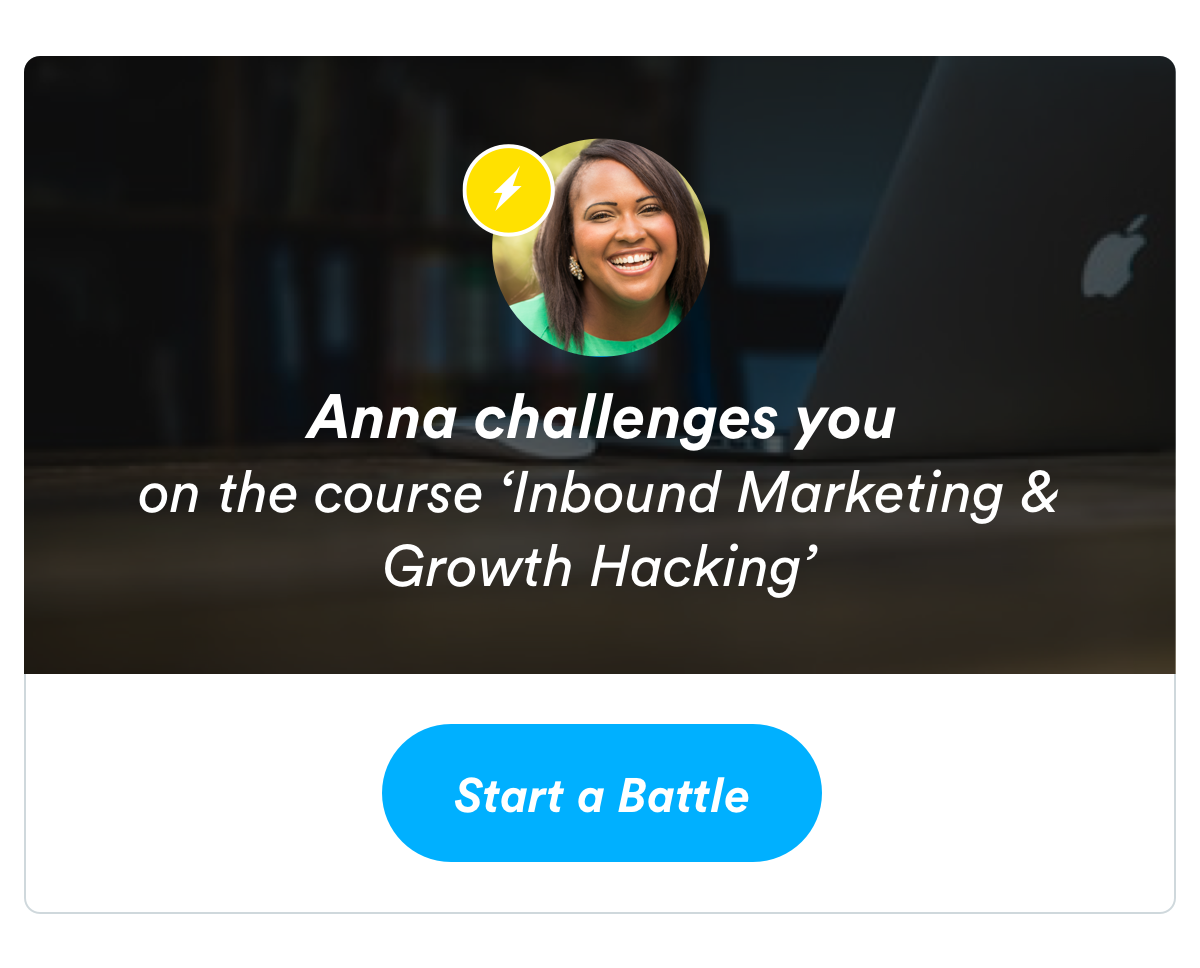According to a study by City and Guilds Group, UK employees are bored with L&D… Pain point by pain point, discover what Coorpacademy does to make their learning experiences better!
According to the study Learning Insights 2019 by City & Guilds Group: ‘UK employees want their employers to provide a much more curated and tailored approach to training to better equip them with the skills needed for the future. They want to see more engaging (37%), personalised (35%) and better-quality (29%) content, as well as shorter micro-learning (23%) methods available at work.’
More engaging?
Why not try the ‘Battle’ mode on Coorpacademy?
In our Learning Report 2018, we identified a type of learners, the Players (the learners who played at least one Battle) and we realized that Players were more engaged and more efficient in training. The Players are 2x more present: the number of months that a learner is active on the platform during his/her whole learner life cycle is two times higher for Battle players than for non-players. The Players are also 3x more active, with more than 3x more lessons viewed. They also dive deeper into the content: they have started and completed 7 more modules on average than non-players. Finally, the Players are 13% more successful (success rate is measured as the completion rate of started modules) than non-Players.
By the way, did you know that our clients are also seeing the difference? In our latest interview with BNP Paribas Asset Management (they launched their Coorpacademy-powered platform Digit’Learning in May 2018), Sylvie Vazelle-Tenaud, Head of Marketing Europe for Individuals, Advisors and Online Banks, told us:
We present the platform as a tool for gaining expertise with a gaming aspect. In our communication, we mainly highlight the functionality of “lives”. We also highlight the fact they can earn stars. This functionality enables us to generate emulation between employees and make them want to take the courses again. Conversely, we didn’t communicate very much about battles but the employees discovered that functionality on their own and loved it! Coorpacademy offers flexibility in learning without being time-consuming, as the average duration of an entire learning journey is 20 minutes. Employees build their expertise in record time while having fun!
Indeed, more than 70,000 Battles have been launched on the BNP Paribas Asset Management platform in only one year. And the Battle mode is pretty successful on Coorpacademy, because we just reached 1 million Battles played on all Coorpacademy platforms!
UK employees want more personalised training content?
Our Behavioural analytics allow us to create 27 learners’ profiles, in order for everyone to have the most personalised and individualised course recommendations.
In one of his latest article published in TrainingZone, Jean-Marc Tassetto, co-founder of Coorpacademy, takes the examples of the Curiosity or Perseverance Key Performance Indicators and how they can be of great help for learners (for their own individualised course recommendations), but also for L&D managers.
L&D managers and administrators benefit [from Behavioural Analytics] because they can access all sorts of new types of insight – not only finding out what someone successfully learned, but how the learner got there and which learning approach they chose.
This opens up tremendous diagnostic value, way beyond pure learning analytics. It also opens up the possibility for new performance indicators, such as curiosity, or perseverance – both hugely valuable HR metrics.
Take curiosity, identified as an “important variable for the prediction and explanation of work-related behavior” (Mussel, 2013). That is really critical, as motivation to engage in lifelong learning is a sine qua non of employability for today’s worker.
Notably, another important effect of curious collaborators is that they contribute to a company’s innovation potential, particularly in the light of the “death of top-down management” (cf. John Bell, 2013).
Employee learning perseverance is another potential new KPI example. When you next need to decide who to recruit to lead a project, or who to train, it may be useful to select those who are qualified but also the most resilient candidate (cf. Amy Ahearn, 2017).
Better-quality?
Our courses are co-edited with top experts, such as IBM, Video Arts, Wolters Kluwer, famous publishing houses…
Shorter?
All our courses are available in a microlearning format: 5 minutes, just the time you need to learn quick insights or refresh your memory on a topic, before an important meeting or when you flight is about to take off.
In his article 5 minutes to learn, Jean-Marc Tassetto, co-founder of Coorpacademy, explains the concept of microlearning:
The content is divided into several shorter, more accessible sessions, with the creation of opportunities and contexts as a background. A session of microlearning should be seen as an opportunity to create special and useful “moments” for learning, particularly on mobile, while waiting for a meeting to start or a plane to take off. It’s during these moments that employees will want to integrate a few useful notions.
We launched “5 minute learning”: short content, editorialized and contextualized according to what’s going on and what our customers need, and delivered on mobile, which allows the creation of these short learning “moments”. All of this is supported by an engaging user experience.
Contact us to know more about what Coorpacademy’s Learning Experience could offer to your organisation!




